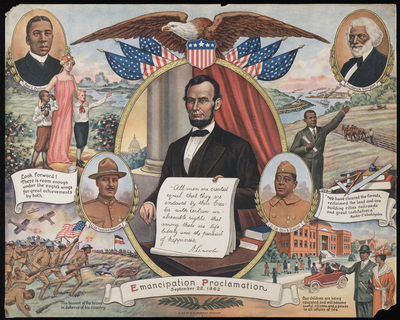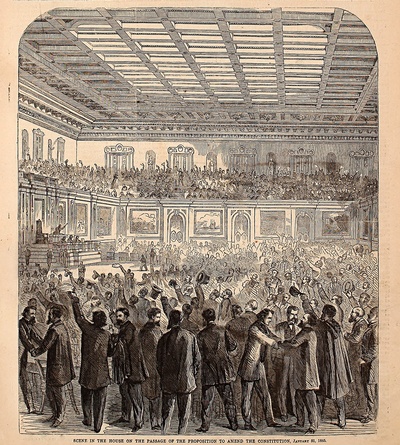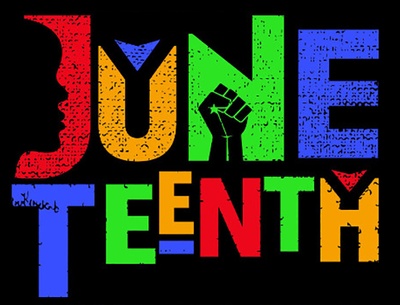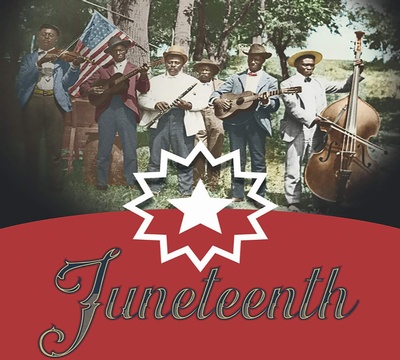The oldest known celebration of the end of enslavement in U.S. history, Juneteenth is a day that recognizes freedom and liberation.
Juneteenth, a combination of the words "June" and "nineteenth, centers Black lived experiences, identity, and history in the United States. Juneteenth remembers the date of June 19, 1865, when enslaved people in Galveston, Texas learned from Major General Gordon Granger and Union soldiers that they were now free across the state of Texas and that the Civil War had ended.
Emancipation Proclamation
President Abraham Lincoln had issued the Emancipation Proclamation on January 1, 1863, which declared "that all persons held as slaves" in rebellious states, "are, and henceforward shall be free." This only applied to the 11 Confederate states that had seceded from the Union, and to only those that had not yet come under Union control. Coupled with this was the reality that during the Civil War, the Union forces were not successful in implementing the Emancipation Proclamation in Confederate states. In many ways, the Emancipation Proclamation did not mark the formal end to the institution of enslavement. In order to abolish the institution of enslavement, the U.S. Federal Government would have to ratify the 13th Amendment.
Ratification of the 13th Amendment
More than a year after the Emancipation Proclamation, on April 8, 1864, the U.S. Senate passed the 13th Amendment. It would take the U.S. House of Representatives until January 31, 1865 to pass the 13th Amendment with the required two-thirds majority. After Congress had passed the 13th Amendment, three-fourths of the state legislatures also had to ratify it.
Robert E. Lee’s surrender on April 9, 1865 led to numerous other Confederate surrenders. With Confederate surrenders combined with Congress’s requirement that Confederate states ratify the 13th Amendment in order to fully rejoin the country, it would only be on December 6, 1865 that the required three-fourths of state legislatures ratified the 13th Amendment. On December 18, 1865, Secretary of State William Seward formally announced to the world that the United States had abolished the institution of enslavement.
"Neither slavery nor involuntary servitude, except as a punishment for crime whereof the party shall have been duly convicted, shall exist within the United States, or any place subject to their jurisdiction."
Juneteenth
On June 19, 1865, nearly 2,000 Union soldiers arrived in Galveston Bay in the state of Texas. Although the 13th Amendment had not yet been signed into law, the Emancipation Proclamation was the legal basis for enslaved people’s freedom in Texas. On that day, Major General Gordon Granger issued General Order No. 3 which stated that the more than 250,000 enslaved people in Texas were free by executive decree, nearly two and a half years after Lincoln’s initial issue of the Emancipation Proclamation. June 19 became a day that marked freedom and annual Juneteenth celebrations began the following year in 1866. Juneteenth has also been called Black Independence Day, Emancipation Day, Juneteenth National Freedom Day, Jubilee Day, and Juneteenth Independence Day.
Juneteenth is a significant day of commemoration because it is one of the few holidays throughout the country that memorializes the end of enslavement, not only for the Black individuals in Galveston, Texas, but as the end of enslavement for the more than four million people in the United States in 1865, after nearly 250 years of enslavement.
In 2019, the State of Pennsylvania designated June 19 as Juneteenth National Freedom Day. In 2020 and again in 2021, the City of Philadelphia designated Juneteenth as an official City holiday. Currently, 47 states and the District of Columbia recognize Juneteenth and there are bills in both the U.S. House of Representatives and the Senate to make Juneteenth a national public holiday.
As we join the Juneteenth festivities this year, we celebrate freedom and recognize both the history of enslavement in the United States and commemorate its end.
For more information and resources about Juneteenth, visit our online calendar for a list of Juneteenth events, browse Juneteenth titles in our catalog, read Kalela William’s blog post on why "Juneteenth Matters", and listen (as a podcast or as a video on YouTube) to an Author Events recording with Professor Annette Gordon-Reed and her book On Juneteenth.
Have a question for Free Library staff? Please submit it to our Ask a Librarian page and receive a response within two business days.




